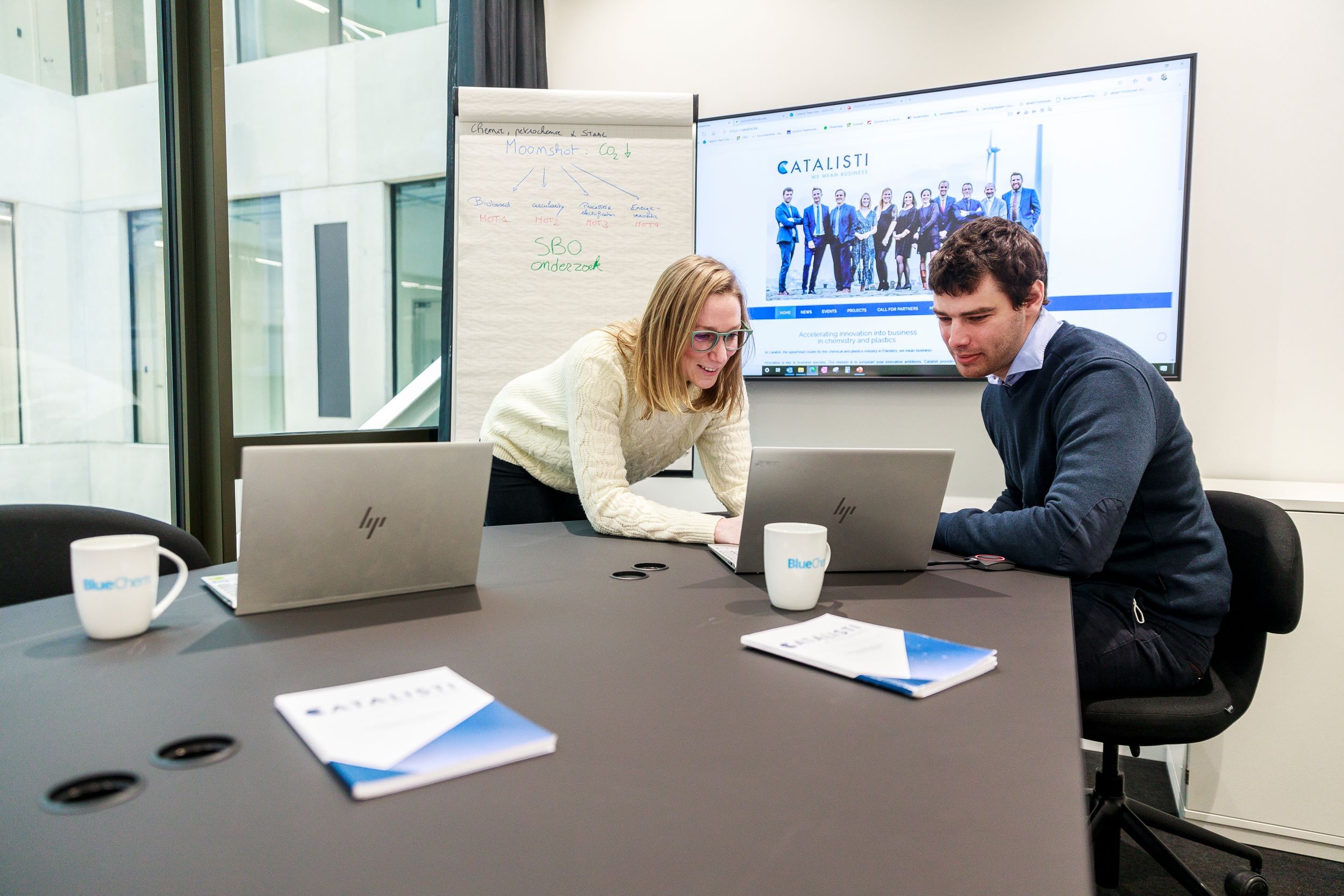
Expert Talks #3
Expert Talks #3: Deloitte, a strategic partner for companies in the transition towards a circular economy
November 2021

Assisting start-ups and growth companies at home and abroad, enabling sustainable innovations for the chemical industry of the future and stimulating them to grow on an industrial scale. That is the mission of BlueChem. It is the first incubator in Belgium that focuses specifically on innovation and entrepreneurship in sustainable chemistry. BlueChem is the ideal location for startups and young scale-ups working on themes like valorisation of waste and side streams, process optimization and the development of renewable chemicals and sustainable products. To achieve this goal, the incubator can rely on strategic partners, such as Deloitte, to share their expertise.
Deloitte is the leading professional services provider in Belgium and is heavily invested to support small and large, public and corporate organisations with their sustainability challenges. The combination of expertise in audit, accounting, legal and tax and advisory makes Deloitte the ideal partner to face the most complex sustainability challenges such as those in the chemical industry.
Catalyst for sustainability
“We see BlueChem as a catalytic environment towards a more sustainable and circular chemical industry. The start-ups play a key role in developing radically innovative ideas and accelerating adoption by the larger industrial players ,” Senior Manager Monitor Deloitte Thomas Van Kerkhoven, points out. “With Deloitte Legal, we assist BlueChem and the participating companies with strategic legal advice,” Senior Associate Climate & Energy at Deloitte Legal Dominique Vanherck adds.
Deloitte envisions what the circular economy of tomorrow should look like. “The keyword here is ‘cooperation’,” Pieter Willot, Manager Sustainability & Circular Economy, explains. “Even more than with traditional business models, additional value is created through collaboration between the various stakeholders. This collaboration enhances circular opportunities, and allows companies to maximize the value of their services and products without losing valuable raw materials. An example of such collaborative project in practice where Deloitte is involved as a facilitator and coordinator in enabling this circularity, is the PlastiCity-project, where a consortium of partners are committed to continuously improve the recycling of plastics through creation of new, short-loop connections in the value chain. This consortium is led by the city of Ghent. In addition, the University of Ghent acts as a knowledge center. And recycling companies such as DPL and Van Werven and waste collector GRCT are supporting this project from within the industry.”
Green Deal
“Legislation also plays a major part in the transition towards a circular economy and as regulatory lawyers,we assist companies with navigating through the complex legal landscape. We closely monitor all regulatory developments related to circular economy. In 2019 for example, a European directive was adopted to reduce the impact on the environment of certain plastic products, the Single-Use Plastics Directive. Among other things, the directive introduced a ban on the marketing of a range of single-use plastic products in the EU,” Dominique explains. “Since 2021 we also have the European plastic tax, a tax on non-recycled plastic packaging waste, as part of the EU’s Recovery Fund. With the Circular Economy Action Plan, embedded into the EU Green Deal, the EU has sharpened its ambitions regarding the circular economy. In future, we expect further legislative changes that will have an impact on the business operations of companies, but which we believe shall also trigger many opportunities for start-ups.”
Without a doubt, plastic is one of the most interesting materials. Thomas explains: “In circular economy you have to start with the idea to maximize value retention. Plastics offer enormous opportunities in that area, but then we have to focus more on closing the small ‘loops’ such as reuse and repairability. We must be able to recycle what is left after those processes,” Thomas adds. “Worldwide, a large part of the waste still disappears in nature or in a landfill. Despite the fact that Belgium is one of the frontrunner countries in terms of pre-sorting, the use of the available recycling technology remains underexploited.”
“We also see that the main producers of plastics are positioning themselves in order to ensure the influx of plastic waste, so that in future they are equipped to put more recycled plastics on the market. This way, plastic waste is effectively treated as a full-fledged raw material and the Circular Economy for plastics becomes a reality, step by step. At Deloitte, we have published a point of view paper about ‘Circular Plastics’, which bundles in a clear way the various actions that are currently being taken by the various stakeholders. We invite everyone to have a look and to reach out to us to discover what potential the Circular Economy can bring for their business.” Pieter concludes.